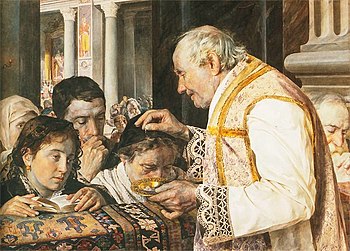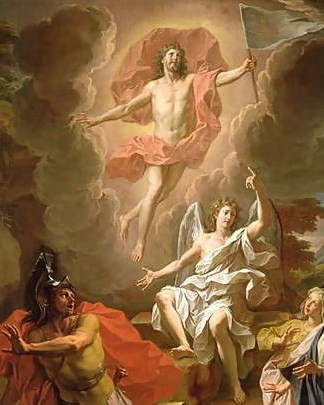
English: Ash Wednesday, watercolor, 78 x 113 cm (detail) Polski: Popielec, akwarela, karton, 78 x 113 cm (frag.) (Photo credit: Wikipedia)
Ash Wednesday is a Christian holy day of prayer, fasting, and repentance. It is preceded by Shrove Tuesday and falls on the first day of Lent, the six weeks of penitence before Easter. Ash Wednesday is observed by many Christians, including Anglicans, Episcopalians, Lutherans, Old Catholics, Methodists, Nazarenes, Presbyterians, Roman Catholics, and some Baptists.
Ash Wednesday derives its name from the placing of repentance ashes on the foreheads of participants to either the words “Repent, and believe in the Gospel” or the dictum “Remember that you are dust, and to dust you shall return.” The ashes may be prepared by burning palm leaves from the previous year’s Palm Sunday celebrations.
Because it is the first day of Lent, many Christians, on Ash Wednesday, often begin marking a Lenten calendar, praying a Lenten daily devotional, and abstaining from a luxury that they will not partake of until Easter arrives.





